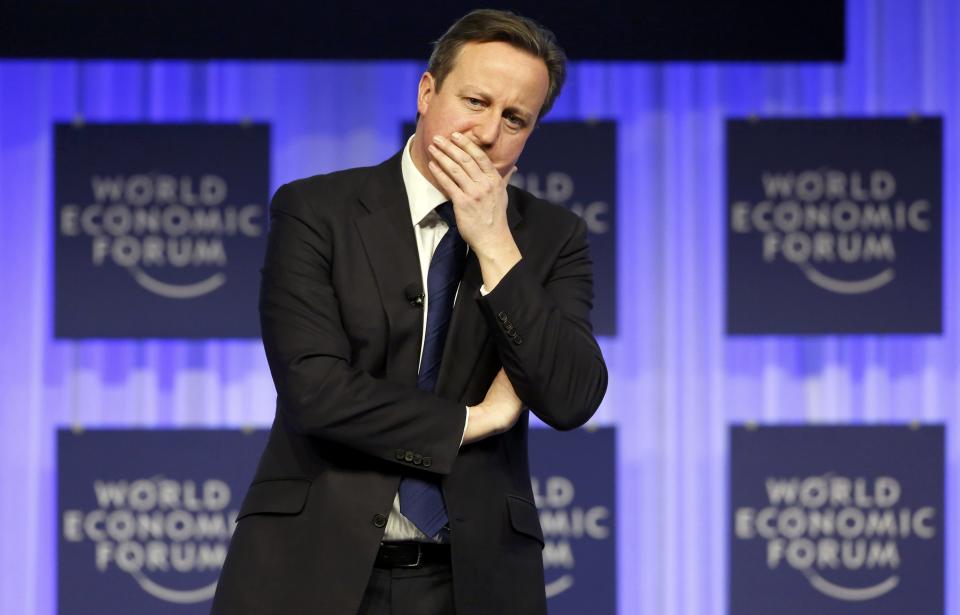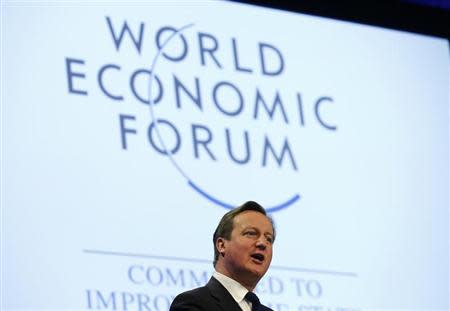UK's Cameron tells Davos he can keep Britain in the EU
DAVOS, Switzerland (Reuters) - Prime Minister David Cameron said on Friday he was confident he could renegotiate Britain's relations with the European Union to allow it to remain in the 28-nation bloc. In some of his most pro-European remarks to date, Cameron told the World Economic Forum in Davos that changes needed to make the euro zone function better meant the EU would need to alter its treaties. That would give Britain an opportunity to recalibrate its own relations with the EU. "I'm confident that we'll have a successful renegotiation and a successful referendum," Cameron told delegates, referring to his plan to reshape his country's EU ties before offering Britons an in/out referendum if his Conservative party is re-elected next year. "I'm confident this is do-able, deliverable and, as I say, winnable for Britain to stay in a reformed European Union." Cameron is under pressure from the anti-EU UK Independence Party (UKIP) and from eurosceptic lawmakers in his own party ahead of elections to the European Parliament in May and a national election next year. He is also mindful of public opinion, with recent polls showing a slim majority of Britons would vote to leave the EU if given the chance because they are fed up with what they see as its overbearing role in everyday life. However, swaths of big business have expressed concern about the prospect of leaving the bloc, warning it would make Britain a less attractive place to do business, while officials in Brussels have said Britain's influence in the world would be diluted. The country's EU partners have also played down the chances of London being able to renegotiate terms with the bloc, amid accusations London is trying to cherry-pick its way to a new relationship at the expense of other member states. Cameron said Britain and the West had an opportunity to boost their economic fortunes by luring back jobs and factories from Asia if they got the regulatory environment right. Rising costs in Asia and the need to react more quickly to changing consumer demands meant companies found the prospect of relocating jobs and services back to their home countries attractive, he said. "For years the West has been written off. People say that we are facing some sort of inevitable decline. They say we can't make anything anymore," he said. "I don't believe it has to be this way. If we make the right decisions, we may also see more of what has been a small but discernible trend where some jobs that were once offshored are coming back from East to West." In particular, he asked the EU not to over-regulate when it came to shale gas, saying it held out the prospect of cheaper energy that would give firms another possible reason to relocate from Asia. A UK government push for shale gas developments has met with strong opposition from local communities and environmentalists to the hydraulic fracturing process used to extract the gas. (Reporting by Andrew Osborn; Editing by John Stonestreet)


